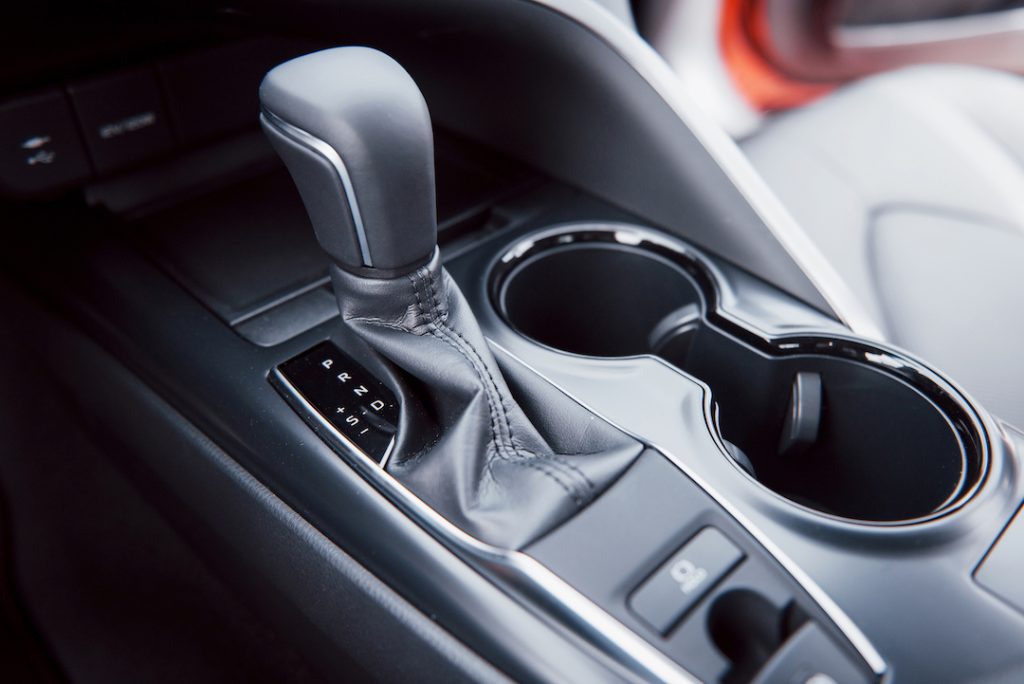The importance of a car transmission service
A transmission service is one of these services that you hear about, but you’re not really sure what it involves. That’s because not a lot of people don’t really understand what the transmission is. You know what the brakes, wheels and engine do. But if we ask customers what they know about their transmission, they often say it’s something to do with the gears.
They’re not wrong. But the transmission is a bit more complex. And it’s a vital part of your vehicle.
What is a car transmission?
Put simply, the transmission is what transfers power from the engine to the wheels. This is done either automatically or manually (with a clutch).
In most cars, the transmission consists of between five and six gear sets and a series of gear trains – belts or chains that run along the outside of the gears. The transmission allows you the driver to control how much power is delivered to the engine. Your transmission ensures that the engine spins at the correct rate and it ensures that the right amount of power is distributed to the wheels.
Remember how a combustion engine vehicle operates. Fuel is used to ignite and start the engine. Pistons and cylinders move the crankshaft, which then turns the wheels. In amongst all of this is the transmission that controls the amount of power. This is a very simplified explanation, but its intention is to help you understand the pivotal role the transmission plays in transferring power from the engine, through the gears, to the wheels. It essentially helps you maintain control over your vehicle.
Different types of transmission systems
The most commonly known transmission systems are manual and automatic, but there also exist other types. You may also hear terms such as continuously variable transmission (CVT), automated manual transmission (AMT), semi-automatic transmission (SAT), clutchless manual transmission (CMT), and a dual-clutch transmission (DCT).
Unless you’re a real car enthusiast, there’s no reason to concern yourself too much with all of these types of transmissions. Just know that an automatic transmission vehicle switches gears automatically, based on built-in systems that sense when it’s necessary to shift to a higher gear. A manual transmission vehicle relies on the use of the clutch for a gear change.
Why does the transmission need servicing?
Like all other parts of your vehicle, preventative maintenance helps your vehicle last longer, minimises the chance of a breakdown and helps keep you safe on the road.
Part of a regular transmission service is changing the transmission fluid. This is the lubricant that keeps all of those moving parts operating smoothly. As you can imagine, there is a lot of movement around the pistons, cylinders, gears and engine. Proper maintenance and lubrication are essential.
Transmission fluid, in addition to keeping the gears lubricated, also helps with the operation of the torque converter, valve body and clutch friction. It also is needed to cool down the transmission and provide friction for the brake band. If your gearbox overheats, it produces debris, which will start wearing down parts inside the gear case.
Worn gears that result from neglecting your transmission servicing can become a costly repair to face. If your gears are grinding and not shifting properly, you’ll encounter difficulty in controlling the speed of your vehicle – which could lead to a dangerous accident.
How can you tell if your transmission needs servicing?
There are a few signs to look out for that indicate it’s time for a transmission service:
- Your engine is revving too high, or slipping down a gear
- Your car is leaking transmission fluid (it’s red when it’s new, and turns a brown colour over time)
- Your transmission is not engaging or staying in gear
- Your car is taking a long time to switch to higher gears
- Your engine warning light comes on and stays on
- It feels like your vehicle doesn’t have as much power or grunt as it should
- There is a grinding sound when you manually change gears
- Your car is overheating regularly – if your radiator and cooling system are problematic, they may be causing your transmission to overheat
Can you service your transmission yourself?
Because the transmission is part of a complex system of interrelated parts, it’s not something that we recommend you fix or service yourself. If everything is running smoothly, you can certainly change your transmission fluid yourself – you can read more about how to do that here. You may even feel comfortable replacing your transmission filter.
For anything else, however, we recommend you refer to the experts at Roskill Auto Mechanical.
Contact us online or call us on 092421870 for a free quote or to book an appointment.

